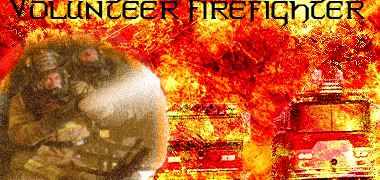Are you going to staff the vehicles upon an alarm in a light force/task force configuration?
This has not been decided fully yet, but here is a question to you and everyone, just for my own personal knowledge...
Since there really are no truck ops, would it be annoying to the majority of you to have to disembark the truck, run to the engine, grab the hose and connect to it each fire
or
would you rather just have 2 on the truck and 4 one the engine since you're going to use those 4 on the engine anyways for 99% of all of the calls, and the 2 on the truck can be used for extrication, master stream, and the few truckie duties that are in game. 2 is just the right amount for the things the truck does, and 4 on the 2-car means less hassle because of the quick deploy.
The whole point of the game is understanding that realism has its place, but it is a very delicate balance between real and game. For absolute realism we'd have the game clock be 1 second = 1 second and you'd only get maybe 3 to 10 fire/ems calls after playing it for 24hrs, and maybe 20 police calls.
And speaking of the game clock..........
Well, what he was saying is that the firefighters doesn't come out of the station 1 second after the bell rings, it takes... 20 to 25 seconds, minimum..
One thing I think many of you fail to realize is that there is a thing called a game clock. 1 second does not equal 1 second. The alarm at FS1 sounds for 15 seconds in real time. 15 seconds equals 5 MINUTES in game time. Here are the run stats for the Los Angeles City Fire Dept from Jan to March 2008
What exactly is 'response' time?
Response times are properly calculated using all three of these:
* Dispatch time -- time spent by the call-taker and dispatchers to initiate the dispatch.
* Turnout time -- from dispatch until units are enroute.
* Driving time -- from enroute until units are at the scene.
During January, February and March 2008, the LAFD response times were:
* First resource on scene at Structure Fire incidents – 95% within 5 minutes.
* First resource on scene at life-threatening medical incidents – 87% within 5 minutes.
* First paramedic on scene at life-threatening medical incidents – 86% within 8 minutes.
For those who might find this quote confusing, that means that from the time the citizen dialed 911 and the phone was answered, firefighters were on scene within 5 minutes almost every time. That includes driving time, turnout time, and call time.
Going by those stats, for 100% of the calls where you are hitting the alarm button, you're late to the call! You want realism, then we should speed up the time it takes to get on the rig, not slow it down.
Hoppah, I do have a question for you. Are at least some of our suggestions at all helpful?
I'm not Hoppah, but I will field this one as well. I've spent the last 4 days going through the 60+ pages in the suggestion thread to cull it, make a list, and see what the future of that thread will be. Honestly, it's a lot like panning for gold. There are some really good ideas, some that will be implemented at some point, maybe not this time, but at some point, but the majority, and it's an overwhelming majority are just thoughtless and without merit. Many of the posts in that thread are made by those who feel a need to comment on every post in every thread possible. I don't know if they are trying to boost their post count, or they just like being very very social. On the flip side, there are some great nuggets and some good conversation that added to the thread. It's really like panning for gold.
Mike





 This topic is locked
This topic is locked




.jpg)














